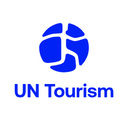Wine Tourism And Rural Development: Strategies To Support Recovery Will Be Discussed In Portugal On 9-10 September 2021
The World Tourism Organization (UNWTO), Visit Portugal and the city of Reguengos de Monsaraz announce dates for the 5th UNWTO Global Conference on Wine Tourism.

Following the success of the past four editions, the Conference will take place on 9-10 September 2021, in Reguengos de Monsaraz in the Alentejo region, in collaboration with the Government of Portugal.
Held under the theme ‘Wine Tourism – a driver for rural development’ in a hybrid format to welcome delegates from all around the world, the Conference will focus on the contribution of wine tourism to social and economic regional integration and its great potential to generate development opportunities in rural destinations.
UNWTO Secretary-General, Zurab Pololikashvili says: “It is now more important than ever to support wine tourism and I am confident that this event will represent a unique opportunity to share experiences that face up these challenging times and place the two sectors at the center of recovery, particularly for the benefit of rural communities. I thank Portugal’s support to accelerate the recovery of the sector.”
The Minister of State, Economy and Digital Transition, Pedro Siza Vieira, aims to position the country “As one of the top destinations in wine tourism, which is a main strategic asset for Portugal due to its ability to attract a highly qualified tourist with high purchasing power, allowing for multiple attraction anchors throughout the territory and throughout the year, thus contributing to territorial cohesion and reducing seasonality. Wine tourism’s development in central in the Recovery Plan (Reactivate Tourism | Build the Future) for the Tourism sector but the dynamization of this product also has a specific and dedicated action plan. The aforementioned Plan will contribute to the enhancement of wine tourism, wine itself and will be a very important contribution to creating more value and employment in these regions.
Mayor off the Municipality of Reguengos de Monsaraz, José Calixto, says: “Welcome everyone to one of the richest wine regions in Portugal! Reguengos de Monsaraz and Alentejo are a territory experienced and felt by Man for over 9,000 years. We are valued by a unique intangible heritage, very hospitable people, high quality wines that are part of our identity and several excellent wine tourism activities, allow unforgettable experiences. We would like to share them with you!”.
Since 2016, the Conference has highlighted the importance of wine tourism to the socio-economic development of destinations and has served as a platform to exchange experiences, identify good practices and promote wine tourism as a tool for sustainable development.
About UN Tourism
The World Tourism Organization (UN Tourism), a United Nations specialised agency, is the leading international organisation with the decisive and central role in promoting the development of responsible, sustainable and universally accessible tourism. It serves as a global forum for tourism policy issues and a practical source of tourism know-how. Its membership includes 166 countries, 6 territories, 2 permanent observers and over 500 Affiliate Members from the private sector.
Media enquires: [email protected]
UN Tourism Communications Department
+34 91 567 8100
UN Tourism
